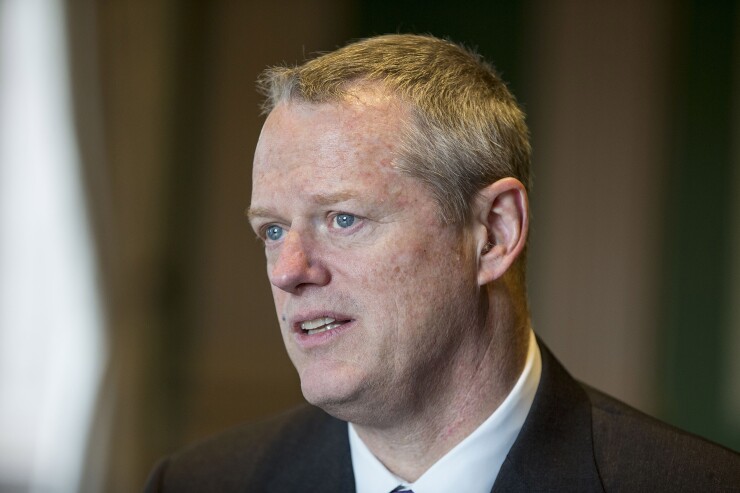Massachusetts began its new fiscal year without a state budget.
A panel of Senate and House of Representatives negotiators have yet to reconcile their versions of a roughly $41 billion plan for fiscal 2019.
Gov. Charlie Baker on June 21 filed a $5 billion interim budget designed to keep the commonwealth operating through July. The temporary plan also authorizes state Treasurer Deborah Goldberg to advance local aid payments to any municipalities that need emergency cash.

The budgets under reconciliation are “remarkably similar” in revenue assumptions, but the similarity belies a more difficult compromise scenario, according to the
“On the one hand, this similarity makes it much easier to resolve differences and come up with a single revenue approach,” the foundation said.
“On the other hand, lack of revenue differences provides little opportunity for one branch to accommodate the different initiatives of the other branch, a fact that is particularly noteworthy this budget cycle because there are significant spending discrepancies between the two budgets.”
Only Massachusetts and South Carolina lack new or revised budgets, according to the
Because Massachusetts House version spends roughly $97 million more on MassHealth, the state program that combines Medicaid and the Children’s Health Insurance Program, its budget generates nearly $50 million more in federal reimbursements.
Aside from MassHealth, said the foundation, about $50 million in revenue differences exists between the two budgets. More than half, or $36.5 million, relate to two Senate policy proposals: a $16.5 million transfer of the race horse development fund – established as part of gaming legislation – to the general fund, and the reliance on $20 million from expansion of the state lodging tax to temporary accommodations such as Airbnb, and the resale of hotel rooms.
The commonwealth sent
S&P Global Ratings rates Massachusetts' general obligation bonds AA, while Moody’s Investors Service and Fitch Ratings rate them Aa1 and AA-plus, respectively. All three assign stable outlooks.
The commonwealth, meanwhile, has issued a request for responses for a senior managing underwriter for new-money GO bonds and current refunding bonds.





